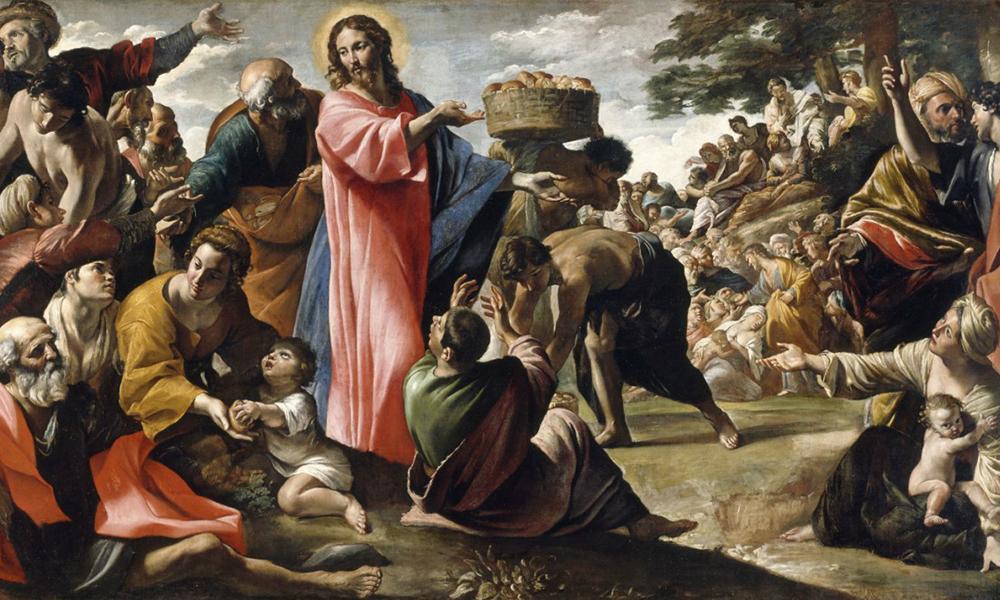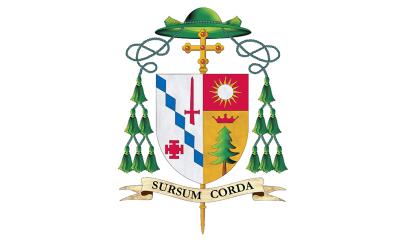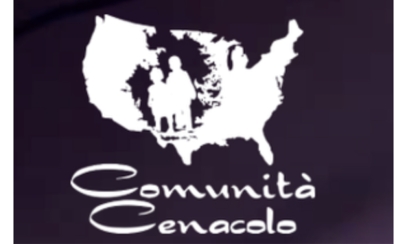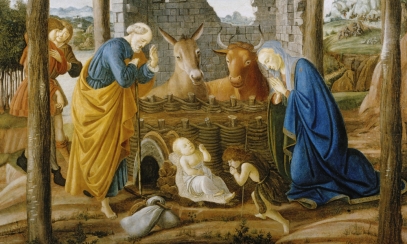
August 22, 2021 homily
“Master, to whom shall we go? Only You have the words that give life.”
“Master, to whom shall we go? Only You have the words that give life.”
My brothers and sisters:
Over the course of the past few weeks, we have been listening to the Gospel from the 6th chapter of St. John’s Gospel, where we were told that there were about 5,000 “men” plus women and children to feed. It sure must have been quite a summer picnic! And the food was fairly straightforward – not an exquisite banquet but a simple one: five barley loaves and two fish. What we have heard is that Jesus is stressing a believer’s relationship with Him: a believer’s commitment (or communion) with the result of freedom. This communion and freedom are at the heart of the Eucharist, with Jesus identified as the Bread of Life, and a solid foundation upon which our Christian and Catholic faith is built.
Examining the Gospel passage more carefully, we note that several questions and statements punctuate the account. From the murmuring noise of the wider group of disciples, we hear our Lord’s challenging question / response. At the end, we eavesdrop on Jesus’ pointed question to His 12 Apostles. Then, we hear Simon Peter’s response on behalf of the 12.
Let’s take a brief look at these questions and statements as a kind of lens through which this teaching about the Eucharist can be better understood.
After hearing Our Lord’s discourse on the Bread of Life, we are told that many of the disciples of Jesus remarked, “This saying is hard. Who can accept it?” This teaching of the Eucharist is but one of the central teachings of Christ. Our Lord is abundantly clear, even from a fundamentalistic point of view: “I am the bread of life. If anyone eats this bread he shall live forever; and the bread I will give IS My flesh, for the life of the world!” – fulfilling His promise – “I am with you always even until the end of the world!”
He said, “This is My Body” and then, in one of the more solemn pronouncements in Scripture, He warned, “If you do not eat the flesh of the Son of Man and drink His blood, you have no life in you.” All of this seemed quite harsh. It astonished a number of the disciples. Some were aghast at what Jesus was saying. They complained in protest. Still, Jesus did not modify it or mollify the growing dissent. He didn’t say, “Well, no, I really didn’t mean it that way, let me try to revise it.” He did say, “Does this shock you? What if you were to see the Son of Man ascending to where He was before?” With Him we will see amazing, incredible things!
He hits the nail on the head when He asserts, “The words I have spoken to you are Spirit and life. But there are some of you who do not believe.” These words are Spirit and life. Do you believe? I ask myself that question often. Do I believe this?
Some refused to believe this teaching, even from the very lips of Jesus; they turned and walked away and “returned to their former way of life.” It’s curious, isn’t it that Jesus did not pursue them? He allowed them to exercise their freedom. Jesus proposed. He did not impose. How our Lord respects our freedom, even when we are faced with difficult and insurmountable challenges. We are never forced to believe: we are not being tricked or inveigled into believing. We are not being forced to remain with Him. Through it all, one of the most powerful forces that we have in our life, that of freedom, is left completely and totally intact: to turn to Christ or to walk away. It’s either Christ “yes” or Christ “no.” That remains the fundamental and decisive choice of a person and indeed of a Christian each and every day.
Finally, He turns to His closest associates and addresses them, “Do you also want to leave?” It was a tense moment, I imagine. It is a question that can be posed to us when we consider our faith and our relationship with Christ. Simon Peter answered, on behalf of all, with another question, “Master, to whom shall we go? You have the words of eternal life.”
There it is. The ones who stayed with Him – His followers - looked for and considered other solutions, other proposals. Through this relationship they had developed with Christ, which was something very personal, they were provoked. Here – right here - was someone who responded so totally and completely to their inner desires in such a way that nothing else came close. Where would they go if they left the greatest thing that happened in their life? To whom would they go to find the answers to the ultimate questions of life? Who would accompany them on the ups and downs, the thick and thin of life? They didn’t have an answer other than their failed past and the fullness of life they were experiencing through the awesome presence of Christ right before their eyes. “You – only you! – You have the words that give life!” We’ve not found anyone else! Can you say that?
The same questions are addressed to us, individually, and as a community. From the Old Testament, we repeat the concern of Joshua who announced to the people, “If it does not please you to serve the Lord, decide today whom you will serve?” To whom or to what do we pledge our allegiance? To whom do we belong? We all have to belong to something -- someone. Nobody is neutral. To ourselves? To our preferred party? To work? To Christ? Many things can blur that relationship. My freedom is based not on the fact that I can do anything I want – but rather to whom I belong. We are made free in Christ to do what we ought and what we must in order to experience the fullness of life Christ has promised!
The “church” can mean so many things to so many different people. The heart of “church” is a place where the continuing Event of Christ – just as He was present then, a place where Christ’s abiding presence can be found today. That presence still provokes us as it challenged the disciples who saw Him face to face. Crowds continued to track Him down because the other answers they found to life’s basic questions and meaning remained unsatisfactory.
So, yes, it must have been quite a picnic … the crowds, the hunger, the seeming impossibility of five barley loaves and a couple of fish to satisfy them - it seemed physically impossible, but also it was Christ Himself who would satisfy something that mere food could not. The miracle resulted not only in the feeding of the crowd and satisfying their physical needs, but a method was given to satisfy something more, their spiritual hungers and thirsts that would lead them to eternity. It was to give them a glimpse at the fullness of their hope, their destiny and what their life could be in this world.
It is true for us, too. The bread and wine we use here will become for us the Body and Blood of Jesus Christ. It is an extraordinary miracle and the fulfillment of the promise of Christ to be with us “all days until the end of time.” Moreover, consuming Christ’s Body and Blood allows us to accept the Lord into our lives, to walk with us, accompany us on our daily journey, and to transform us more and more into His image. Remember, in baptism we have “put on Christ”!
You have come here to seek Christ - His presence, His comfort, His challenge for your life. And yes! There will be challenges in life. He never promised it would be smooth sailing into heaven! Even the foundational aspects of life we hold dear will be challenged.
Our faith is founded on an encounter with Jesus Christ, the only one who can pierce through our inadequacy and limitedness. It is in communion with Him that we find our freedom and fullness of life, not to do what we like but to do what we should. Jesus offers Himself as a sure and certain guide.
Today, the Church also commemorates the Queenship of Mary. How blessed we are that our Lady is not only our mother, but our queen who is so close to her Son, bidding on our behalf. Her purity, her life was such that she kept her focus totally fixed on Him with her “Yes”! Like her, may we stay fixed on Him as well.
It is Christ to whom we belong. It is in Christ that we are free. And it is Christ who is our destiny. When facing our challenges and given the options to stay or leave, we, too, look to and echo the words of Peter, “Master, to whom shall we go? Only You have the words that give life.”



